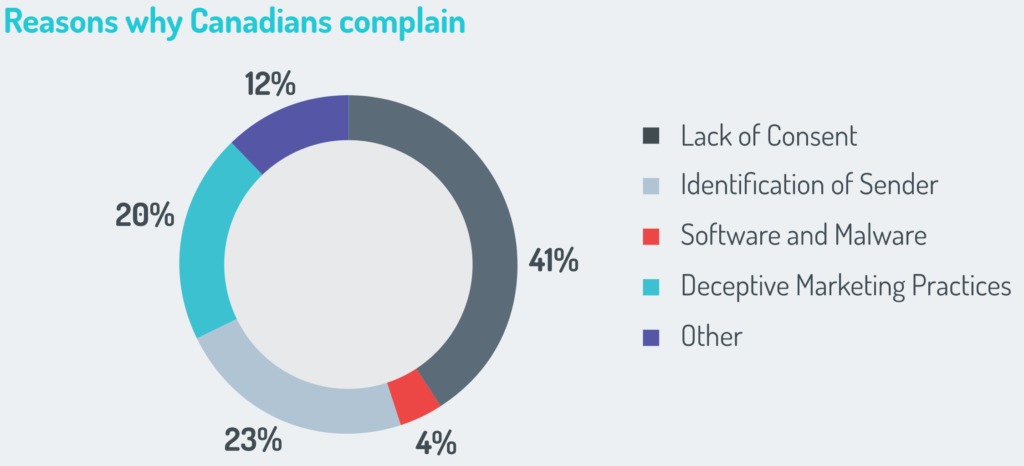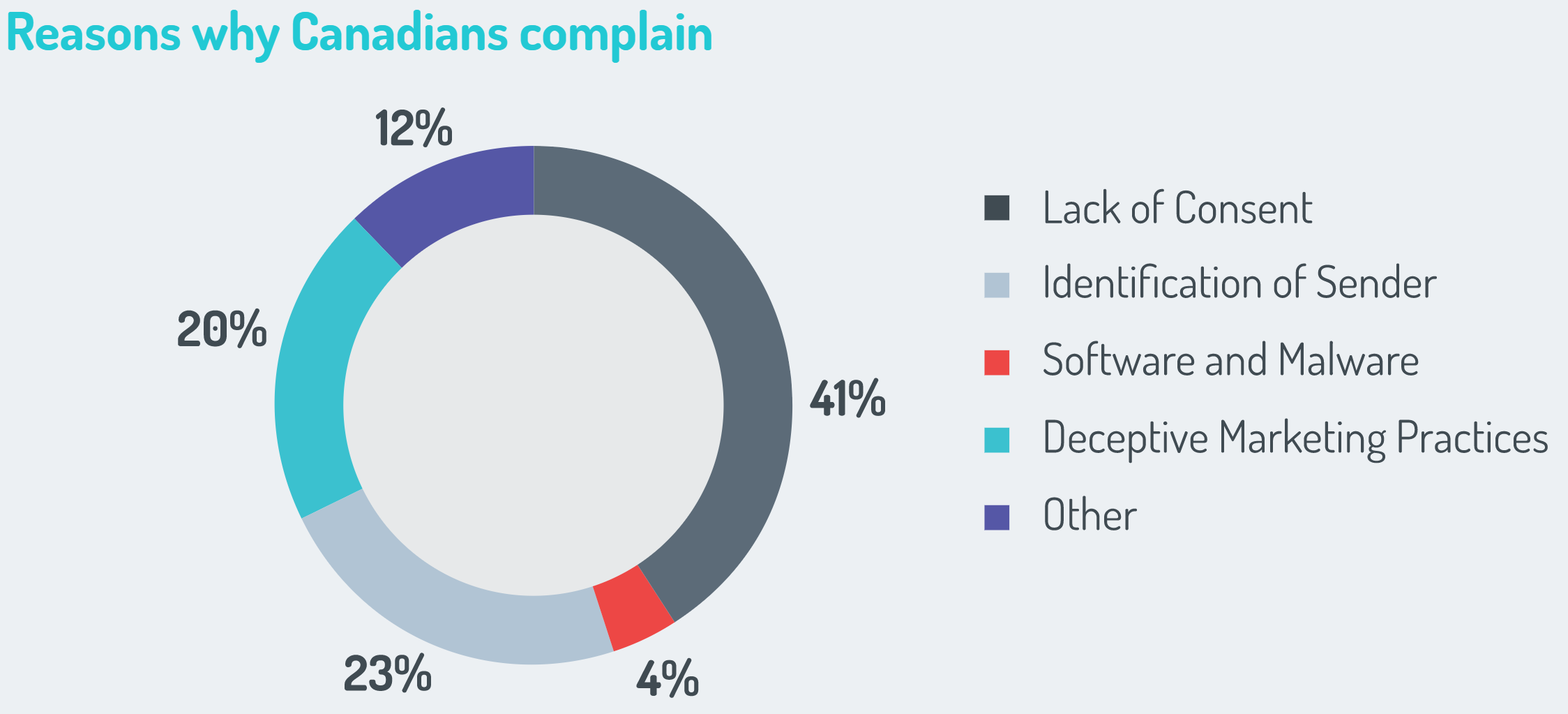The CRTC just updated their semi-annual benchmark report, covering April through September 2019, on CASL enforcement and there are some really interesting stats being shared.
While we’ve seen very little on the enforcement front, just one penalty and one new guidance document but that doesn’t mean that the CRTC hasn’t been busy in the last year.
Some notable stats include 6 warnings sent to companies, 71 notices to produce documentation or information and 5 preservation demands were issued. Could this foreshadow future enforcement actions in the 4th quarter or in early 2020.
This data also shows Canadian’s are still reporting spam in significant volumes, at a rate of almost six thousand emails a week, with a significant number of reports for SMS messages being sent without consent, or other CASL required information.
Interested in learning how to report SMS spam to your provider (this does not go to the CRTC to my knowledge):
The number one reason that people are complaining about messages is still constant over previous reports with lack of consent being number one, followed by identification and deceptive marketing practices. This means that businesses should take a look at their data collection practices and see where they can improve transparency and make subscriptions easier to understand.

The top 5 most reported types of messages changed slightly over the last report and now include; Dating Services, Offers of money, Nigerian Prince fraud, Personal Finance, and Phishing Scams.
One last interesting note included in the report notes that during the election process the CRTC received complaints about political messages, emails, texts and phone calls, but these are not covered by CASL as they were not commercial in nature and most political messaging is exempt from the legislation.


